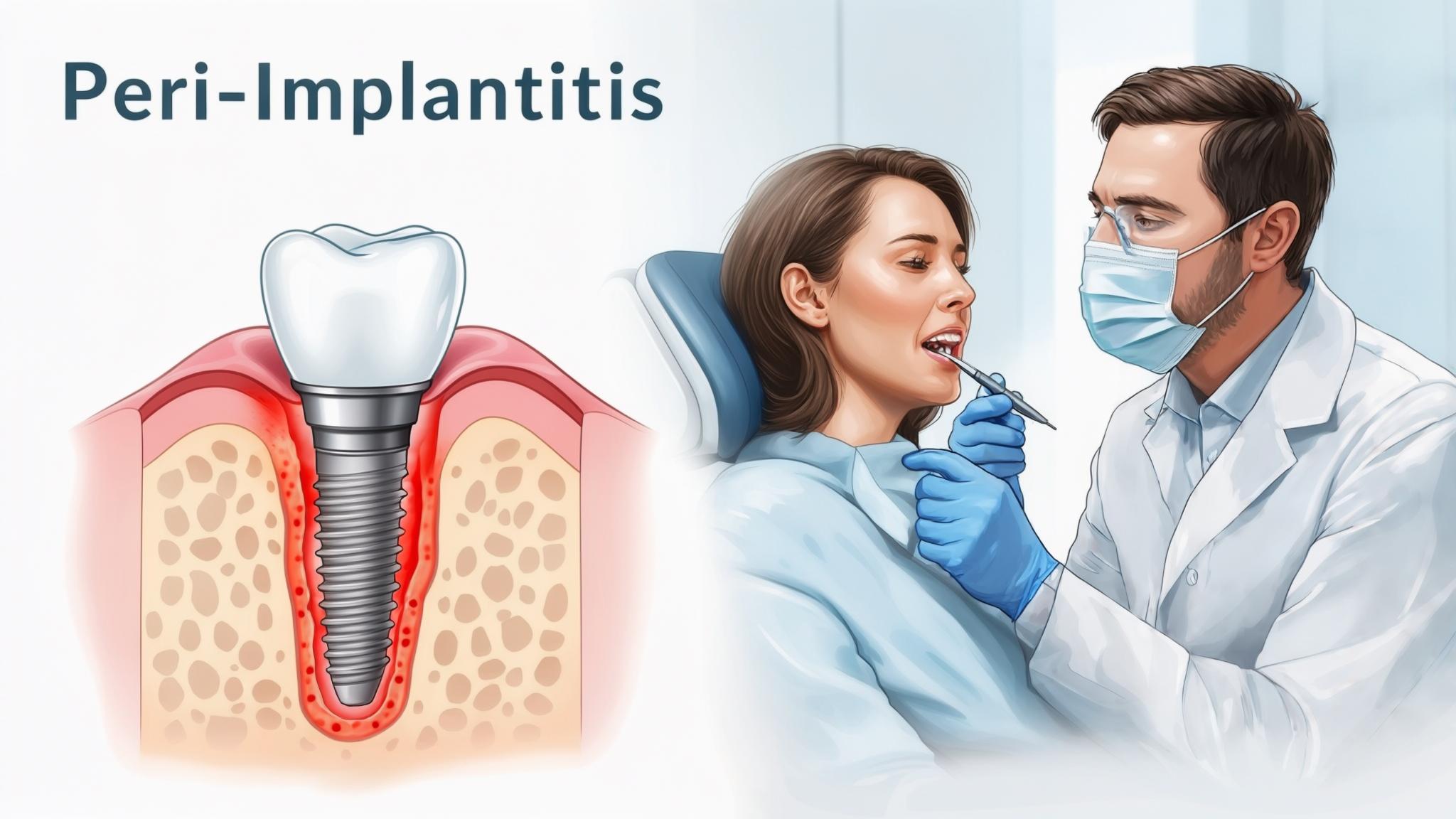Introduction
Dental implants have become a popular and effective solution for replacing missing teeth. These artificial roots, typically made of titanium, are surgically placed into the jawbone to support a crown, bridge, or denture. Maintaining oral health around dental implants is crucial to ensure their longevity and functionality. A common concern associated with dental implants is peri-implantitis, a condition that can jeopardize the success of an implant. Understanding what peri-implantitis is and how to prevent it is essential for anyone considering or currently having dental implants.
Understanding Peri-Implantitis
Definition of Peri-Implantitis
Peri-implantitis is an inflammatory condition affecting the soft and hard tissues surrounding a dental implant. It is characterized by inflammation of the gums and progressive bone loss around the implant. Unlike general gum disease, which affects natural teeth, peri-implantitis is specific to dental implants.
Causes of Peri-Implantitis
Several factors can contribute to the development of peri-implantitis:
- Bacterial infection: Like natural teeth, dental implants can accumulate bacterial plaque, leading to infection if not properly cleaned.
- Poor oral hygiene: Inadequate brushing and flossing can increase the risk of peri-implantitis.
- Smoking and lifestyle factors: Smoking impairs healing and can contribute to the development of infections.
- Systemic conditions: Conditions such as diabetes can affect the body's ability to fight infections.
Symptoms of Peri-Implantitis
Recognizing the symptoms of peri-implantitis early is vital:
- Inflammation and redness: Gums around the implant may appear swollen and red.
- Pain or discomfort: You may experience pain when touching the implant area.
- Presence of pus or discharge: This indicates infection in the tissues surrounding the implant.
- Bone loss: Over time, bone loss around the implant can occur, compromising its stability.
Risk Factors for Peri-Implantitis
Patient-Related Factors
- History of periodontal disease: Previous gum disease can increase susceptibility to peri-implantitis.
- Genetic predisposition: Some individuals may be genetically prone to inflammatory responses.
- Poor oral hygiene practices: Neglecting regular oral care can lead to complications.
Implant-Related Factors
- Type of implant used: Different designs and materials can affect susceptibility to peri-implantitis.
- Surgical technique and placement: Improper placement can increase the risk of complications.
- Material of the implant: Some materials may be more prone to bacterial colonization.
Environmental Factors
- Smoking: A well-known risk factor for many oral health issues, including peri-implantitis.
- Poor nutrition: A diet lacking in essential nutrients can impair healing and immune response.
Diagnosis of Peri-Implantitis
Clinical Examination
- Visual assessment: Dentists will examine the gums and implant site for signs of inflammation.
- Probing depths: Measuring the depth of pockets around the implant helps assess the health of the surrounding tissue.
Radiographic Evaluation
- X-rays: These images are crucial for assessing bone loss around the implant.
- Regular follow-up imaging: Helps in monitoring the implant's condition over time.
Treatment of Peri-Implantitis
Non-Surgical Treatment Options
- Professional cleaning and debridement: Removing plaque and tartar to reduce bacterial load.
- Antibiotic therapy: Used to control infection and inflammation.
Surgical Treatment Options
- Flap surgery: In severe cases, surgery may be needed to clean infected areas.
- Bone grafting: If bone loss is significant, grafting may be necessary to restore stability.
Importance of Early Intervention
Early treatment of peri-implantitis can prevent further complications and help preserve the implant.
Prevention of Peri-Implantitis
Importance of Oral Hygiene
- Proper brushing and flossing techniques: Essential for keeping the implant and surrounding areas clean.
- Use of antimicrobial mouthwash: Helps reduce bacterial load.
Regular Dental Check-Ups
- Professional cleanings: Regular visits to the dentist for cleanings are crucial.
- Monitoring of implant health: Regular check-ups help detect any early signs of peri-implantitis.
Lifestyle Modifications
- Smoking cessation: Quitting smoking can significantly decrease the risk.
- Balanced diet and nutrition: Supports overall oral health and healing.
Patient Education
- Understanding the signs and symptoms: Being aware of what to look for can lead to early detection.
- Encouraging proactive oral health practices: Educated patients are more likely to maintain good oral hygiene.
Conclusion
Preventing peri-implantitis is crucial for the longevity of dental implants. Regular dental visits and maintaining excellent oral hygiene are key. Patients should feel empowered to take charge of their oral health and seek timely professional advice. By doing so, they can enjoy the benefits of their dental implants for many years to come.
References
- American Academy of Periodontology
- National Institute of Dental and Craniofacial Research
- PubMed Central for scientific studies on peri-implantitis.

